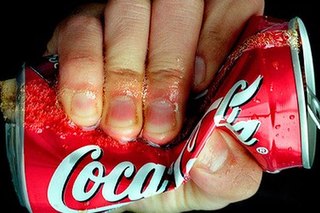


ArmInfo. Minister of Agriculture of Armenia Ignaty Arakelyan ordered to return to the initial version of the law "On biosafety of the application of GMO products in the territory of the Republic" at the meeting of the Commission on the study of transgenic technologies in the agro-sphere of the Republic.
The minister called upon those responsible for the sphere to study the document in two weeks and submit proposals on it. According to the press service of the Ministry of Agriculture, during the meeting, problems of biosafety in biotechnology and bioengineering were discussed in the creation of genetically modified organisms (GMOs).
As a result of discussions, a decision was made that the legislative regulation of this area should proceed from the principle that science has not yet confirmed the safety of transgenic technologies, which means that the use of GMOs should be prohibited. The members of the working commission also stressed the importance of raising citizens' awareness of the use of genetically modified (GMO) products in terms of the country's biosafety.
On November 1, the efforts of the US Embassy in Armenia in Yerevan hosted a presentation of the activities of Valmont and Monsanto. Both companies are well known in the world market: the former is engaged in the sale and maintenance of mechanized irrigation equipment, and there are no complaints about it. The same cannot be said about the transnational corporation Monsanto - this company is engaged in the production of transgenic seeds and poisons for their processing. And then the charge d'affaires of the US Embassy in Armenia Rafik Mansur marked the entry into the Armenian market of a whole presentation. In an interview with reporters, Alexander Zvyagintsev, Sales Manager for Monsanto in the CIS, assured that the company will not offer Armenian partners to work with genetically modified products, as they "do not do it in countries where it is prohibited." But for about 20 years now, the company has been selling seeds in Armenia and advising farmers. In turn, the US Embassy in Armenia reported that Monsanto has been selling its products on the Armenian market since 2006. Speaking about the objectives of the presentation of the Monsanto and Valmont companies (the sale of irrigation equipment) in Armenia, the US Embassy explained that the event was held in the context of US policy on stimulating American investments in the Armenian economy. Meanwhile, in late September, The Guardian published an expository article that Monsanto officially spent about 300,000 to 400,000 euros a year lobbying for its interests in the European Parliament. An internal correspondence was also made public, where the company's employees discuss ways to better prevent the normal study of the glyphosate pesticide and its recognition as dangerous, and correspond with some American officials and scientists about it. Later it was also discovered that the European organization EFSA, responsible for product safety, copied its 2015 report on glyphosate from the Monsanto 2012 authorship report.
Earlier, in an interview with ArmInfo, Ignaty Arakelyan noted that as early as 2013, the Ministry of Nature Protection acted with the legislative initiative on GMO products in Armenia, but for some unknown reasons the process was suspended. "We plan to return to the legislative initiative and understand how relevant it is today, and whether there is a need for it," he said.